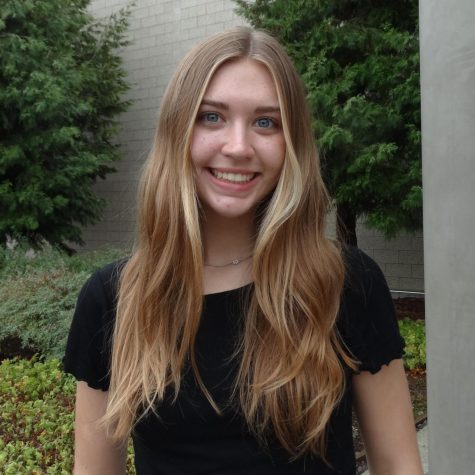Two Classes of Freshmen
October 20, 2021
Due to online school caused by the raging coronavirus pandemic, hundreds of freshmen and sophomores are now coming to IHS not having had a full year of in-person school since the 2018-2019 school year. Both grade levels are desperately trying to get their grasp on transitioning to high school. Freshman year has always been a challenge, however this situation has created more obstacles than ever seen before. IHS freshman Regan Magee stated, “We spent most of our middle school years online, and are still adjusting to high school because we were barely in person last year.” This has created a unique dynamic in our school, as IHS tries to balance two grades of new students. How should our school best tackle this pressing issue? What needs or concerns should be addressed by the Issaquah High community? In order to better comprehend the extent of the situation and provide answers to some of these questions, four IHS freshmen and sophomore students were interviewed to shed light on their experiences thus far.
Throughout each student’s interview, several questions were asked about how their classes have been. Freshman Elizabeth Dean states, “I like all of my classes and my teachers are really nice. I got lucky with good teachers.” Likewise, sophomore Reidar Geraci says, “Obviously I can’t speak for everybody, but all my teachers are really good about making class welcoming.” Due to the educational lag that has been felt by countless students because of COVID-19 and online learning, students need staff to be more understanding than ever before. It is wonderful to see that a large majority of our teachers are recognizing and meeting these crucial needs. Language Arts teacher Danae West suggested that it is important that teachers portray an understanding demeanor and tone in their conversations. West states, “Show them that you want their success so that they won’t feel embarrassed.” As simple as it is, demonstrating care can make a huge difference and be exactly what a student needs from their teachers.
Another question that was inquired of these students was concerning the social life amongst their grade levels. With the combination of social distancing, masks, and the mental implications from isolation, a lot of people feel less social than ever before. However, freshman Chase Sawyer states, “People are really friendly.” Likewise, Dean says, “I’ve made a lot of new friends in theatre, and I have friends at my lunch, so that’s nice.” Discovering that these students still feel connected to the people around them was greatly relieving. On the other hand, sophomore Julia Nelon, who transferred to Issaquah amidst the chaos of virtual classes, says, “It’s really hard to make a connection with anyone at the school right now. People feel socially settled already.” Branching out and stepping outside of social comfort zones has always been a bit of a struggle for teenagers, however, with all of the extra anxiety induced from COVID-19, many people have found themselves more reserved than ever before. It is so crucial that as a community, IHS works on making everyone feel welcome, especially the new students at our school.
Teachers of underclassmen are making strides to increase social interactions between their students. West says, “I’m giving them more opportunities to talk to one another. We did some fun quirky icebreakers that were more personal, which helped them have things to talk about with each other.” Spanish-one long term sub Melissa Young says, “We do lots of dialogue in Spanish class with each other. We also have played some get-to-know-you games.” Any effort toward connecting these students is more important than ever before. As a former transfer student, I know how important any attempt to connect students can be. If teachers can understand that, these students will be in a much better place.
Overall, the freshman and sophomore students at IHS all have unique concerns and experiences that will vary amongst who you talk to. However, the general feedback concerning teachers and student social life was generally similar. It is pivotal that IHS recognizes what they are currently doing well, and what they can improve upon moving forward. Although students generally responded with positivity, IHS must reach all of the needs that might be more hidden. Geraci says, “I like it when a teacher can tell when a student is trying” and goes on to express, “If they do that, that is enough.” These students’ pleas are simple and not overbearing at all, and it is important that the staff and upperclassmen continue to help these students feel heard. As we all adjust to this new normal, our school community needs to focus on sticking together. With the past year and a half stripped away from us, it is important that IHS exerts sufficient energy to ensure that all of the in-person high school these students have will be meaningful, lasting experiences.


